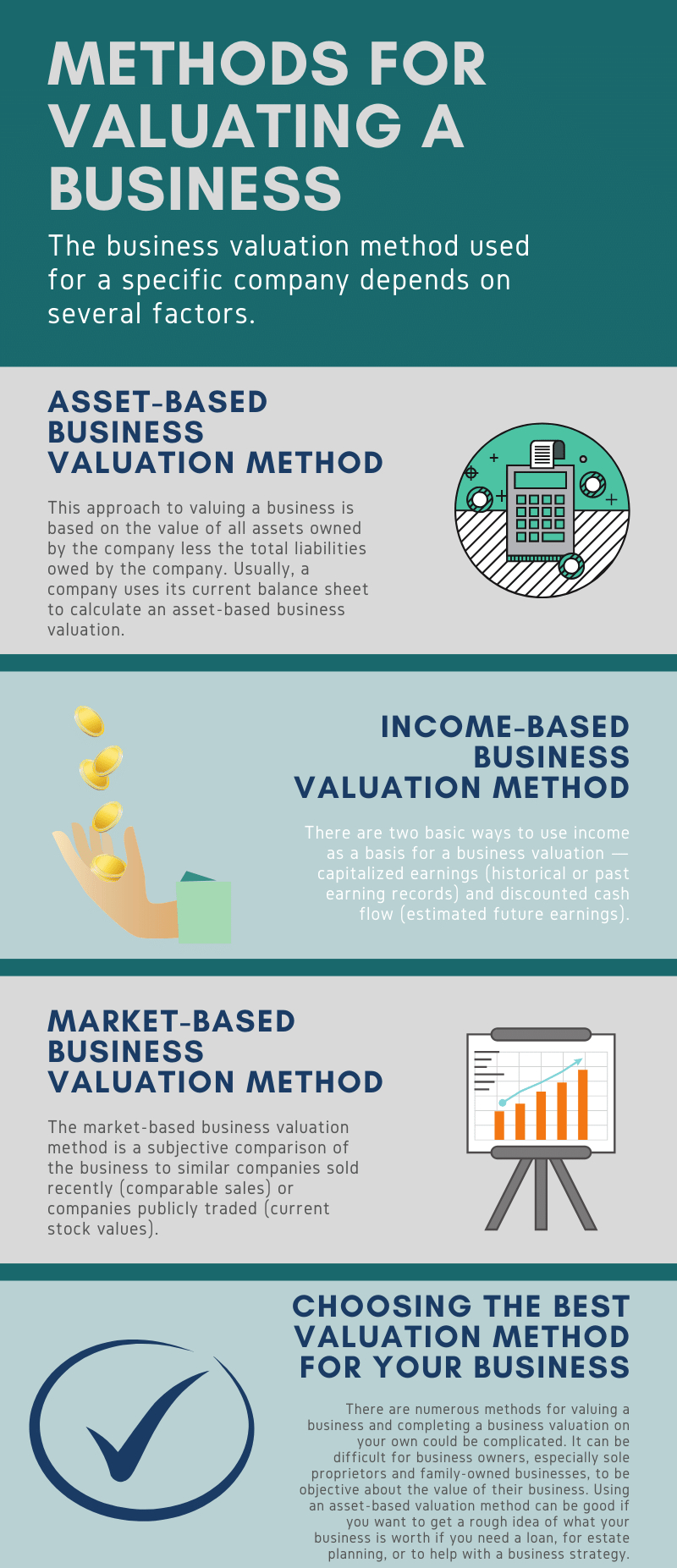Business Valuations Sydney :: Business Valuations By Certified Business Valuers
Business Valuations Sydney – Melbourne – Brisbane – Canberra – Adelaide – Perth – Newcastle
: Services provided by Xcllusive Business Agency
Business Valuations
Sydney – Melbourne – Brisbane – Canberra – Adelaide – Perth – Newcastle
: Services provided by Xcllusive Business Agency
call
Demystifying Business Valuation: A Comprehensive Guide for Everyday People
Understanding the Basics of Business Valuation
In the world of business, the concept of “business valuation” is often discussed, especially when buying or selling a company. However, many everyday individuals find this term perplexing and intimidating. What exactly is business valuation, and why is it relevant to you, even if you’re not a financial expert or a seasoned entrepreneur? In this comprehensive guide, we’ll break down the intricacies of business valuation into digestible bits and explain its significance in a way that anyone can grasp.
What is Business Valuation?
At its core, business valuation is the process of assigning a financial value to a company. Think of it as determining the price tag for a car or a house, but in this case, the asset in question is a business. The goal of business valuation is to estimate the value of a company based on various factors, data, and methodologies. This valuation serves several important purposes, and it’s not just reserved for large corporations or financial wizards. Here’s why business valuation matters:
- Selling Your Business: If you’re a business owner considering selling your company, knowing its value is essential. It helps you set a realistic asking price, attract potential buyers, and engage in meaningful negotiations to secure a fair deal.
- Seeking Investment: Entrepreneurs looking to attract investors or secure loans often need to provide a business valuation to demonstrate the potential and attractiveness of their venture to financial backers.
- Mergers and Acquisitions: When companies consider merging with or acquiring another business, understanding the accurate value of the target company is crucial. It guides decision-making and negotiation processes.
- Estate Planning: Business valuations play a critical role in estate planning, ensuring the seamless transfer of business ownership to family members or beneficiaries, along with a fair distribution of assets.
- Financial Reporting: Publicly traded companies must regularly report their financials, which includes the value of their assets and liabilities, based on proper valuations.

Breaking Down the Valuation Process
Now that we’ve established the importance of business valuation, let’s delve into how it’s done. The process of valuing a business combines elements of both art and science, and it involves several methods and considerations:
- Asset-Based Approach: This method assesses a business’s value by adding up its assets (both tangible and intangible) and subtracting its liabilities. Tangible assets might include real estate, equipment, and inventory, while intangible assets encompass intellectual property such as patents, trademarks, and copyrights. This approach is often used for businesses with significant physical assets.
- Income-Based Approach: In this approach, the focus shifts to estimating the future cash flows that the business is expected to generate. One of the most common methods under this approach is the Discounted Cash Flow (DCF) analysis, which calculates the present value of projected future cash flows. It considers factors like revenue growth, operating expenses, and anticipated income.
- Market-Based Approach: The market-based approach determines a business’s value by comparing it to similar companies in the market that have recently been sold. This approach relies on market data and trends to arrive at a valuation. It’s particularly useful for small businesses and startups that may not have substantial assets or a long history of financial performance.
Factors Influencing Business Valuation
Various factors can significantly impact the valuation of a business. Understanding these factors helps shed light on why two seemingly similar businesses may have different valuations:
- Financial Performance: Metrics such as revenue, profit margins, and growth rates play a substantial role in determining a business’s valuation. Businesses with strong financial performance often command higher valuations.
- Market Conditions: Economic conditions, industry trends, and the competitive landscape can influence a business’s value. A thriving market can boost valuations, while a recession may have the opposite effect.
- Intellectual Property and Assets: Intellectual property rights, including patents, trademarks, copyrights, and other intangible assets, can significantly impact a company’s worth. Unique assets set a business apart and add value.
- Customer Base: A loyal and diverse customer base can make a business more valuable. It suggests stability and future revenue potential, which positively impact valuations.
- Management Team: The competence and experience of a management team often contribute to a business’s value. A strong leadership team is an invaluable asset that potential buyers or investors consider when assessing a company.
Tools and Experts in Business Valuation
Valuing a business can be a complex undertaking, often requiring specialized knowledge and tools. Business valuation experts employ various techniques and resources to arrive at accurate assessments. Some commonly used tools include financial modeling software, industry research, and historical financial data.
Steps to Value Your Business
Now that you have a grasp of the key concepts in business valuation, let’s explore the steps you can follow to conduct a business valuation effectively:
Step 1: Gather Financial Statements
Begin the valuation process by collecting your business’s financial statements. These statements should include income statements, balance sheets, and cash flow statements for the past few years. These documents offer valuable insights into your business’s historical financial performance.
Step 2: Identify Assets and Liabilities
List all the assets your business possesses, both tangible and intangible. Tangible assets may include real estate, equipment, and inventory. Intangible assets encompass intellectual property, such as patents, trademarks, and copyrights. Next, list your liabilities, including loans, debts, and outstanding bills.
Step 3: Analyze Earnings
Utilize the income-based approach to assess your earnings. Estimate your future cash flows by considering factors like revenue growth, operating expenses, and any one-time income or expenses. The Discounted Cash Flow (DCF) analysis is a commonly used method under this approach, which calculates the present value of projected future cash flows.
Step 4: Consider Market Data
If applicable, investigate recent sales of similar businesses in your industry and region. This can provide a benchmark for your business’s value. The market-based approach relies on such data to arrive at a valuation that aligns with market trends.
Step 5: Choose the Right Valuation Method
Select the most appropriate valuation method or a combination of methods based on your business’s nature and the data available. Small businesses and startups often lean towards the market-based approach, while businesses with significant tangible assets may favor the asset-based approach.
Step 6: Adjust for Specific Factors
Take into account any unique factors that may affect your business’s value. Market trends, industry-specific conditions, and the competitive landscape are examples of factors that may necessitate adjustments to your valuation.
Step 7: Consult a Professional
If you are uncertain about the valuation process or want an expert opinion, consider working with a business valuation expert or consultant. These professionals can provide invaluable insights, ensure accuracy, and help you navigate complexities.
Step 8: Document Your Valuation
Once you’ve completed the valuation, document your findings in a clear and organized manner. Proper documentation is essential, especially if you plan to present the valuation to potential buyers, investors, or lenders.
Step 9: Review and Update Regularly
Remember that valuations are not static. They can change over time due to various factors, including shifts in the market and your business’s financial performance. Periodically review and update your business valuation to ensure it remains relevant and accurate.
Conclusion
By following these steps and considering the different valuation approaches, you can confidently answer the question, “How do I value my business?” Armed with this knowledge, you’ll be better equipped to make informed decisions, whether you’re selling your business, attracting investors, or simply assessing your company’s financial health.
In conclusion, business valuation is not just for the financial elite; it is a valuable tool that can empower business owners and entrepreneurs to make strategic decisions and understand the worth of their ventures. We hope this comprehensive guide has demystified the concept and provided you with the clarity and confidence to navigate the world of business valuation effectively.
350+
Businesses Sold
1,250+
Appraisals
10,985
Motivated Buyers
Enquire Now About An Expert Business Valuation - Call Us Today on:
1800 825 831
or...
Fill In The Form Below and One Of Our
Experienced Team Members Will Contact You:
VALUATION




WHAT OTHERS ARE SAYING ABOUT US…
***The most honest and intuitive organisation***
“I can honestly say, as a person who has now sold three businesses in the past 8 years, Xcllusive is far and away the most honest and intuitive organisation that I have had the pleasure of dealing with.”
Leon J. – Import and Wholesaling business
Learn Thoroughly…
A business valuation is not the amount that the business can definitely be sold for. A valuation is simply the opinion of an expert who understands the field in which the assets are being valued and has acquired, through proper investigation, all necessary data and facts about the business being valued.
Following this, the expert will then evaluate this data and run a comparison with internal and external forces affecting the enterprise. This, together with market data, historical sales and other possible investments compared to this business, the valuer can then establish their opnion of the business value.
The emphasis here is on expert opinion and possible business value. The only way to determine the exact value of the business is to arrange an arms length transaction of that business.

The international value standards (IVS) refer to market value as follows-
“Market value is the estimate and amount for which an asset is to exchange on the date of valuation between a willing buyer, and willing seller, in an arms length transaction wherein each of the parties has acted knowledgeably prudently and without compulsion.”
Most Valuations are not commissioned for the purpose of selling the business on the open market as an arms length transaction. It is far more common for valuations to be commissioned for the purposes of determining the value of the business that will not go on the open market. These instances may include-

- Partnership Dissolution
- Family Matters
- Divorce settlements
- Raising the Capital Finance
- Determining a by-in price
- Estate planning
Baring all of these facts in mind, it is very important, when doing the Valuation, to find the right expert who will produce a logical and factual Valuation backed by evidence that will help you through your decision process or resolution quickly and efficiently. So to find out more call us any time including after hours and weekends or fill in the form below.
Enquire Now About An Expert Business Valuation - Call Us Today on:
1800 825 831
or...
Fill In The Form Below and One Of Our
Experienced Team Members Will Contact You:
VALUATION




WHAT OTHERS ARE SAYING ABOUT US…
***The most honest and intuitive organisation***
“I can honestly say, as a person who has now sold three businesses in the past 8 years, Xcllusive is far and away the most honest and intuitive organisation that I have had the pleasure of dealing with.”
Leon J. – Import and Wholesaling business







